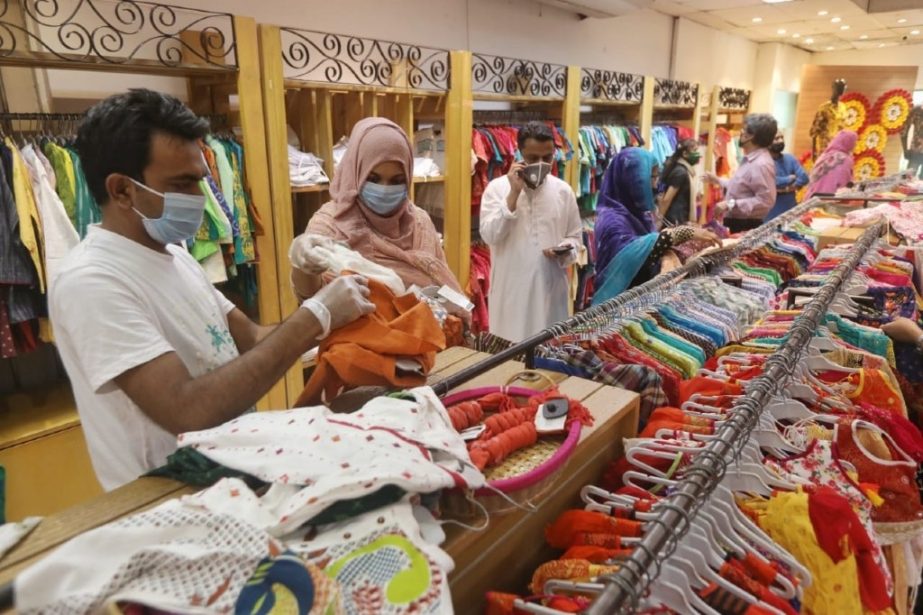
Economic Reporter :
Eid sales of domestic fashion and other lifestyle products have come down to around one-fifth of pre-pandemic time this year as the people have lost income.
Eid-ul-Fitr, the largest religious festival for Muslims, is also the largest occasion for retailers, who said about 60 to 70 per cent of their revenues come from the sales during this period.
But the retailers struggled to sell their products due to the ongoing restriction on people’s movement and suspension public transport ahead of the Eid.
According to the Bangladesh Shop Owners’ Association, a platform of retailers, Eid-ul-Fitr sales this year came down to around Tk 5,000 crore, which was about Tk 25,000 crore in 2019.
“Eid sales stood at about Tk 25,000 crore before the Covid-19 outbreak in the country in March last year. Sales crashed during this Eid and it declined to Tk 4,000-Tk 5,000 crore,” said Helal Uddin, President of the Bangladesh Shop Owners Association.
He blamed the lockdown during Ramadan for the low turnover as people’s movement was restricted and the duration of keeping shopping malls open was reduced.
The government allowed shops and shopping malls to reopen on a limited scale on April 25 amid lockdown, which started on April 5. As per the government decision, shopping malls and shops owners were allowed to keep shops open from 10:00 am to 8:00 pm every day. In Dhaka, shops were allowed to stay open until 9:00 pm.
People spent less compared to the pre-Covid period as their income declined and a huge number of people lost their jobs because of the pandemic, Helal added.
“Sales of fashion products were far below our expectation and it was about 50 per cent compared to the pre-Covid sales,” Fashion Entrepreneurs Association of Bangladesh’s former President Azharul Haque Azad.
As per the organisation, the sales of fashion products stood at about Tk 5,000 to Tk 5,500 crore during the Eid-ul-Fitr celebrated in 2019.
“As there was less time than usual for us to conduct business, sales came down. We could not sell products from the beginning of Ramadan. That is why sales failed to reach the peak and we are struggling to recover the losses,” said Azad.
Though there was an option of selling products through online marketplaces, it was very slow and the participation was small in comparison to physical outlet sales, said the FEAB leader.
The government first announced a lockdown from April 5 to prevent the second wave of novel coronavirus infection, resulting in a closure of all shops and businesses. As the situation was getting worse, a total lockdown started from April 14 to 21, which was extended in phases till May 16. Shop owners were asked to resume their businesses from April 25.

